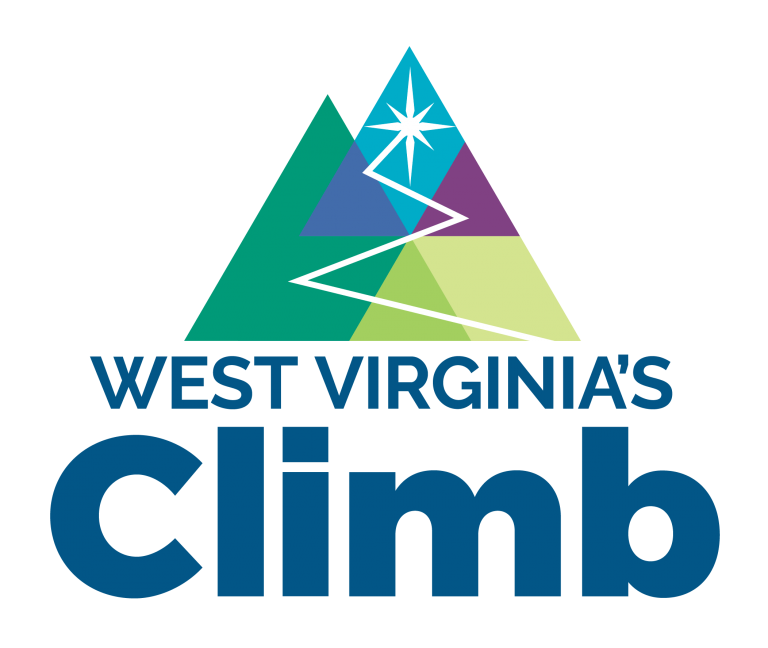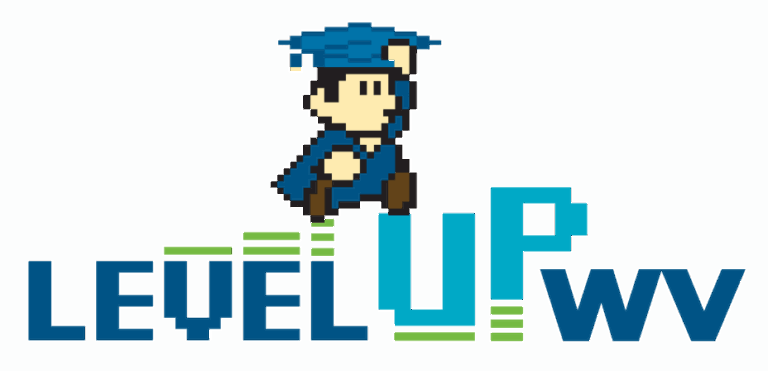LevelUp Requirement Information
Students
Enrollment Process
Students will enroll through their high school counselor by choosing from an approved list of career pathways that their county, private school, home school, etc. reflected on an MOU from the institution.
Key Steps for Students
- Work with your counselor (or designated educational coordinator for homeschool/alternative programs)
- Choose from approved career pathways available through your school’s MOU
- Meet university admission requirements (same standards as regular college students)
- Participate at no cost – tuition is fully state-funded program
**Students are encouraged to enroll in a single pathway with a single institution.
Student Support Services in LevelUp WV
Based on WV HEPC Series 19, Section 8 (Academic Support Services), here’s the comprehensive support system provided to every LevelUp student:
Dedicated Academic Advisor
Each student is assigned an academic advisor employed by the university who provides:
- Name and contact information provided before the first day of classes
- Office hours and meeting scheduling process
- Ongoing availability to assist students throughout the program
Mandatory Academic Check-In
Required meeting between advisor and student (virtual or in-person) that occurs before the university withdrawal deadline, covering:
- Academic resources available to assist students
- Availability of the advisor for ongoing support
- Process for engaging faculty and other campus resources for academic help
- University student handbook and code of conduct
- Academic impact of dropping courses and effects on state financial aid eligibility
High School Counselor Coordination
Before classes begin, universities provide high school counselors with:
- Complete roster of participating students from their school
- Course enrollment list for each student
- Critical withdrawal date – when dropping would negatively affect grades
Comprehensive Course Resources
Every student receives a detailed course syllabus that includes:
- Learning objectives
- Course and assignment deadlines
- Links to university services
- Contact information for faculty and academic advisors
- Other information necessary for student success
Full University Access
Same rights and access as on-campus students, including:
- University libraries
- Laboratories
- Databases
- Other learning resources
Quality Assurance
Faculty evaluation and oversight:
- Universities evaluate dual enrollment faculty using the same processes as other faculty
- Courses must meet the same academic standards as on-campus instruction
Parents
- WV HEPC Series 19
- WVa Code § 18B-14-4
- For questions, contact Jodi Oliveto, jodi.oliveto@wvhepc.edu
Acknowledgment: The courses listed in the approved pathway under the LEVELUP Memorandum of Understanding (MOU) pertain to students enrolled in a homeschool, charter school, microschool, learning pod, or private school setting and an institution of higher education. While the courses listed will count toward graduation at the high school level within the PK-12 setting specified in the MOU, they may or may not be accepted by a West Virginia county school system if the student should transfer back to a county school.
Resources Provided to Families from High School Counselor
- University contact information for academic advisors
- Informational session schedules
- Career pathway descriptions and requirements
- Textbook and material cost information (not covered by program)
- University student handbook and conduct policies
This support system ensures you have the information needed to guide students effectively while maintaining coordination with university partners throughout the process.
Financial Benefits
- No cost to students: Participation in the dual enrollment pilot program is tuition free for participating students
- $75 per credit hour: The Commission reimburses institutions at a rate of $75 per credit hour
- Textbook costs: While tuition is covered, families should budget for textbooks and course materials
High School Counselors
Based on WV HEPC Series 19, here’s the essential support information counselors need:
What Universities Will Provide You
Before the first day of classes, participating universities will send you:
- Complete roster of your students enrolled in the program
- Detailed course enrollment list for each participating student
- Critical withdrawal date – the specific date when dropping a course would negatively impact the student’s GPA
Your Role in Student Success
Pre-Enrollment Support:
- Help students select from approved career pathways available through your school’s MOU
- Ensure students understand program requirements and expectations
- Coordinate with university representatives during informational sessions
Ongoing Monitoring:
- Track student progress using the enrollment information provided by universities
- Be aware of withdrawal deadlines to help students make informed decisions
- Serve as a liaison between students, families, and university advisors
Student Academic Support Structure
Each of your students will receive:
- A dedicated university academic advisor (name and contact info provided before classes start)
- Mandatory check-in meeting with their advisor before the withdrawal deadline
- Access to all university resources (libraries, labs, databases)
- Comprehensive course syllabi with university service links
Critical Information to Share with Students
Academic Impact Awareness:
- Consequences of dropping after the no-fault withdrawal date
- How failing a dual enrollment course affects eligibility for state financial aid programs
- University students conduct expectations and academic policies
Communication Timeline You Can Expect
Universities will provide:
- Upon enrollment: Notice of student admission
- Within 21 days of classes starting: Course enrollment confirmation
- Within 21 days after classes end: Course completion notices with grades
- Official transcripts: Available upon student request
Quality Assurance Information
Academic Standards:
- All courses meet the same standards as on-campus university instruction
- Faculty are evaluated using the same processes as regular university faculty
- Credits are fully transferable between West Virginia’s higher education institutions
Program Logistics
- No cost to students – tuition fully state-funded program
- Available to juniors and seniors (some pathways may allow earlier start)
- Focus on career pathways in high-demand fields like healthcare, IT, advanced manufacturing, construction, engineering, education, and agriculture
Resources to Provide Families
- University contact information for academic advisors
- Informational session schedules
- Career pathway descriptions and requirements
- Textbook and material cost information (not covered by program)
- University student handbook and conduct policies
This support system ensures you have the information needed to guide students effectively while maintaining coordination with university partners throughout the process.
MOU Requirement
The enrollment process requires a Memorandum of Understanding (MOU) between the educational entity (county school system, private school, homeschool program, etc.) and the participating university to establish the partnership and approved course offerings. Each pathway must list the dual credit courses for both high school and university/college and will include a minimum of one career specific course.
Acknowledgment: The courses listed in the approved pathway under the LEVELUP Memorandum of Understanding (MOU) pertain to students enrolled in a homeschool, charter school, microschool, learning pod, or private school setting and an institution of higher education. While the courses listed will count toward graduation at the high school level within the PK-12 setting specified in the MOU, they may or may not be accepted by a West Virginia county school system if the student should transfer back to a county school.

